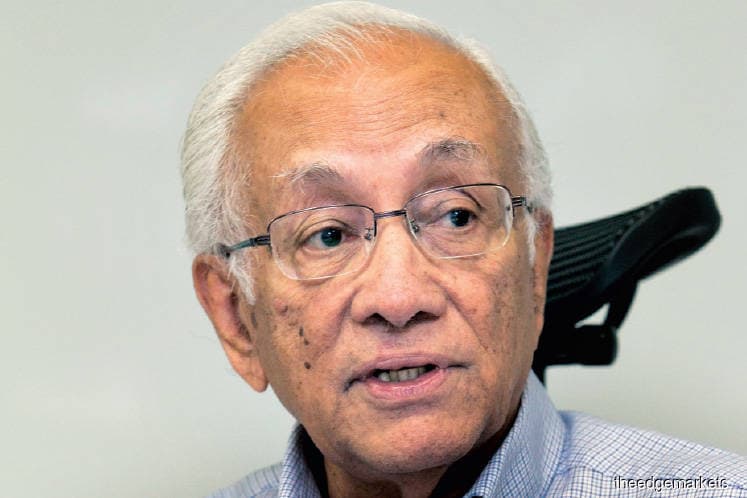
This article first appeared in The Edge Financial Daily on November 13, 2017
KUALA LUMPUR: The single certification scheme for palm oil proposed by the European Union (EU) may be stricter than the Roundtable on Sustainable Palm Oil (RSPO) certification, says an industry expert.
“I have a feeling that the EU certification would be higher or stricter than the RSPO certification. Otherwise why [would they] bother?” said M R Chandran, who is an adviser to the RSPO executive board.
Chandran said the RSPO — made up of various organisations from different sectors of the palm oil industry — launched “RSPO Next” last year as a voluntary add-on to its existing principles and criteria for sustainably grown palm oil. RSPO Next policies include no deforestation, no planting on peatland, no fire, and no exploitation of smallholders’ and workers’ rights.
“Major companies have subscribed to RSPO Next but the EU is bringing in a couple more criteria that are more difficult [to comply with],” Chandran told The Edge Financial Daily.
He said palm oil certification should be market-driven, decided on at a multi-stakeholder level and between businesses rather than as a government-led initiative.
“Ethical consumerism these days is a critical agent of change with both public and private participation on the rise. My view is simple: Standards are driven more by markets than government and industry,” he said.
Insisting that the EU has no business trying to set a certification standard, Chandran said: “Countries do not do it, only markets do it. It is the consumers that determine when buying what eco-label is found on the product.”
He added that “everyone is being nationalistic” and while it is good that governments want their own certifications, these are only baselines.
“I am not saying the Malaysian Sustainable Palm Oil (MSPO) and Indonesian Sustainable Palm Oil (ISPO) should not be there but these baselines are for small players,” he said.
Malaysia wants every plantation in the country to be MSPO-certified by the end of 2019 to elevate the industry to global standards. Those that are already RSPO-certified must comply with the MSPO by the end of next year while those without should do so by mid-2019, and smallholders by the end of 2019.
Last week, a Malaysian delegation to the EU learnt that the grouping’s parliamentarians are determined to ratify the EU resolution on palm oil and deforestation of rainforests.
The resolution, passed on April 4, requires palm oil exporters to comply with a single certified sustainable palm oil scheme, and also calls for the phasing out of palm oil from EU biofuel programmes by 2020.
The German-initiated biofuel certification called the International Sustainability and Carbon Certification (ISCC) is accepted throughout Europe. ISCC, which requires a reduced carbon footprint, applies to commodities ranging from sugar to ethanol, rapeseed and soya oil.
“Companies convert palm oil to biodiesel that is RSPO-certified and sell it as ISCC because they have to conform to ISCC to export to Europe. I feel EU’s single certification would not be able to fill that gap,” said Chandran.
He added that commodities such as coffee, cocoa, sugar, bananas and soya oil have voluntary independent standards.
“For palm oil, there are already four major ones — RSPO, MSPO, ISPO and ISCC. On top of that you have individual linkages with forest trusts, Greenpeace and Rainforest Action Network, coming up with their own standards while the financial sector has its own standards.
“Often, their baseline criterion to lend to oil palm players is that they should be RSPO-certified. So these are multiple standards but how do you find a common ground when the standards are multiple?”
RSPO was formed in 2004 to promote the growth and use of sustainable palm oil products through conformity to credible global standards and engagement of stakeholders.
It currently has 3,583 members comprising oil palm growers, processors and traders, retailers, banks, and non-governmental organisations.
“RSPO is a multi-stakeholder approach with contribution from everyone to the P&C (principles and criteria). We adapt to changing landscapes and demand. It addresses the complex supply chain, and end-to-end standard from production to consumer.
“The P&C is reviewed every five years. We come up with a new set in November 2018,” Chandran said, adding that certification improves productivity.
“About 2.46 million hectares of oil palm production area is certified by RSPO and the production of sustainable palm oil is now 11.77 million tonnes which translates into 4.75 tonnes of oil per hectare.
“Certification improves productivity. Our national average in 2016 was just below four tonnes per hectare compared to the world’s average of 3.5 tonnes. The certified countries enjoy 4.75 tonnes of oil per hectare,” he pointed out.
Refuting claims that countries outside EU are not keen on sustainable palm oil, Chandran said about 83 palm oil supply chains became RSPO-certified in China as of July 2017, and in the US and Canada, the number grew to 194 in July from 114 in January.
“In Europe, large facilities totalling 2,453 are RSPO-certified. One can see more supply chain facilities are becoming members of RSPO, and they are sourcing RSPO oil,” he said.
Chandran said RSPO requirements include agricultural and management practices, and manufacturing, and involves documentation.
“Now, in the world of transparency, you will see companies such as Sime Darby Bhd having sustainability reports that show the number of injuries, the causes, remedies and prevention. That is transparency,” he said.